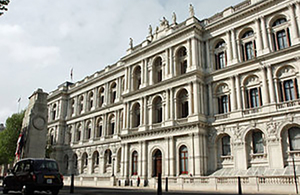Government to take control of unpaid work to strengthen community sentences
- HM Prison and Probation Service (HMPPS) to deliver offenders’ unpaid work and behavioural change programmes from June 2021
- more than £100 million a year available to charities and private sector for rehabilitation
- changes ensure probation system has flexibility to deal with disruption from coronavirus
The move will ensure innovative, new measures to strengthen community sentences can be delivered quicker and more effectively. The government has already ensured serious violent and sexual offenders spend longer in prison and robust community penalties will offer an appropriate level of punishment, while tackling the underlying drivers of offending.
With the transition to the new probation system set to take place over the next 12 months, the move will also provide greater control, flexibility and stability during the unprecedented challenges posed by the coronavirus pandemic. This approach will ensure that the HMPPS takes on responsibility for supervising all offenders in England from next June as planned.
The voluntary sector – so fundamental to reducing reoffending by improving the lives of offenders through rehabilitation – will play an enhanced role in the probation system. Charities and private sector organisations will be able to compete for more than £100 million pounds a year from today (11 June 2020) to run services such as education, employment, accommodation and addiction treatment. Cutting reoffending rates will mean fewer people becoming a victim of crime.
Announcing the changes, Lord Chancellor Robert Buckland QC MP said:
An effective probation service is essential to cutting crime, tackling reoffending, supporting victims and keeping the public safe. These plans support our move towards a justice system that is tough but smart.
That means combining the right sentences with new technology, like sobriety tags, and world-leading rehabilitation which turns offenders’ lives around. This is how the Government will ensure fewer people become a victim of crime.
The private sector will continue to play a key role in rehabilitating offenders, from specialist support services and operating prisons through to tagging and the job offers they give to those leaving jail.
The government has long-ended the situation where short-term prisoners were not monitored after release, with an extra 40,000 offenders now supervised every year.
The shake-up of probation will allow probation staff to work more closely with local authorities and the NHS to help offenders find a stable home and medical treatment so that they can hold down a job and leave the criminal lifestyle behind for good.
HMPPS will build on its record for protecting the public when it takes on an excellent group of around 2,000 talented people from the Community Rehabilitation Companies with experience in delivering unpaid work and behavioural change programmes.
Funding will be available via competition to charities, private companies and social enterprises which help address cross-cutting social issues that lead to criminal behaviour such as poor mental health, drug and alcohol addiction, homelessness, debt and poor education. The voluntary sector has some of the best experience, innovation and skill to tackle these issues, helping offenders turn their lives around and reducing reoffending.
From today, organisations will be able to pitch the services they can deliver, at what scale and in what region. Services can then be competitively commissioned for delivery at a local level, by prison governors, Probation Regional Directors, Police and Crime Commissioners and other authorities which require them.
The expertise of the private sector will continue to be used in the running of prisons, which run a number of high-performing prisons including HMPs Altcourse and Ashfield. The government is committed to a mixed market, with both the public and private sectors running prisons. The private sector will play an important role in the Government’s ambitious prison reforms, including the investment of £2.5 billion to transform the prison estate and create an additional 10,000 prison places.
A competition to operate the new prison being built at Wellingborough is currently running and due to be followed by a further competition to operate another new prison at Glen Parva.
